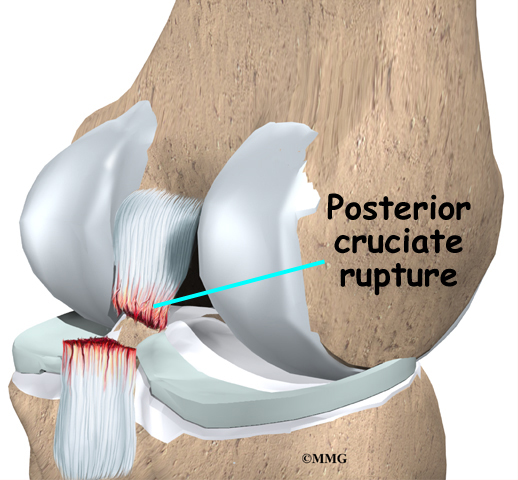ACL: One slip away

The ACL stands for Anterior Cruciate Ligament and its general location is in the back of the knee. This is perhaps the most dangerous of the knee injuries. A tear to this ligament almost always means surgery if you wish to continue playing sports. If this injury occurs you are out for anywhere between 4-6 months, even longer if you are a slow healer. The rehab is brutal and the pain obscure. This can happen anytime when your leg locks and gets hit or you try to make a cut while it is locked. The injury is simply. The surgery is NOT. It can differ between all people. Generally some method of pulling together the two sides of the ligament and even taking some muscle from another part of the body to put in between is common. This allows the muscle to grow together. I have seen many players go down in pain instantly upon feeling the tear. The sad thing is you usually know right when it happens. The positive, so do medical professors. An MRI is used to confirm this always.
PCL: Short but crucial

The PCL stands for posterior cruciate ligament and it is found on the outside of the knee near the main vein. This injury is sustained similarly to the ACL one but more often occurs from hits to the side of the knee. The injury is just as painful and it is not so easy to identify. The injury is obscure enough in feeling that you must get an MRI. The benefits are that it rarely requires surgery and you can return to action in as little as 3 WEEKS! (generally 4). The way to treat it is therapy and simply letting it heal on its own. The muscle is able to grow and attach itself again. During this process you will limp and need to stay off of the leg but even light running is possible a couple weeks in. The trick with this injury is not to come back too soon. As long as you give enough time you will come back with no issues.
MCL: Usually more then meets the eye

The MCL stands for medial collateral ligament and is located below the femur. In other words it is just inside the front of the knee (next to the kneecap). This injury is sustained from direct blows to the knee cap especially when from the outside coming in. This injury rarely occurs from nonphysical activity (cutting and such). The SCARIEST thing about the MCL is that it very often comes in a package. What that means is that when this is injured it is usually accompanied by another part of the knee sustaining injury. The ACL, PCL, meniscus or many other parts are all possible companions. The main reason for this is because the kind of hit the knee takes and in order for the knee to open up to the extent it does (that causes the MCL tear) some other ligament must have given in also. The good news is that if the MCL is the only part to get injured it almost always means it is not serious. This means that you have a slight tear. The knee will swell slightly and, if really minor, an athlete will be out only 1-2 weeks! Even a more serious tear results in 3-4 weeks of no contact. The knee will feel like it is going to buckle. Rehabilitation is necessary to eliminate that. A severe injury (full tear) can take up to 10 weeks. Like the PCL the other good note is that it does not require surgery. Even when completely torn!
The fact is that all these injuries thanks to recent medical developments are no longer long term, permanent or career ending issues. Knee braces and "sleeves" are common to wear after these injuries and provide with the recovery and the ability to go out and play again.
No comments:
Post a Comment